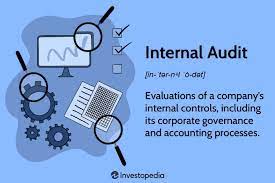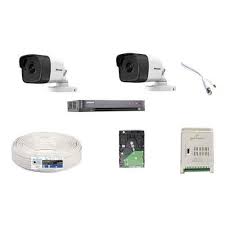The Importance of Auditing in Business
Auditing is a crucial process that plays a significant role in ensuring the transparency, accuracy, and reliability of financial information within an organization. It involves the examination and verification of financial records, statements, and reports to provide assurance to stakeholders regarding the company’s financial health and performance.
One of the primary purposes of auditing is to detect and prevent fraud, errors, or discrepancies in financial records. By conducting regular audits, businesses can identify any irregularities or inconsistencies in their financial transactions and take corrective actions promptly.
Auditing also helps in ensuring compliance with laws, regulations, and accounting standards. Companies are required to adhere to certain guidelines and reporting requirements set by regulatory bodies and governing authorities. Through audits, organizations can demonstrate their adherence to these standards and maintain their credibility among investors, creditors, and other stakeholders.
Furthermore, auditing provides valuable insights into the efficiency and effectiveness of an organization’s internal controls and operational processes. Auditors assess the internal controls in place to safeguard assets, ensure data integrity, and promote operational efficiency. By evaluating these controls, companies can identify areas for improvement and enhance their overall risk management practices.
Overall, auditing serves as a critical tool for promoting accountability, transparency, and trust within an organization. It helps businesses uphold ethical standards, mitigate risks, improve decision-making processes, and build confidence among stakeholders. By investing in regular audits conducted by qualified professionals, companies can strengthen their financial governance practices and foster long-term sustainability.
8 Essential Tips for Conducting Effective Audits
- Understand the audit objectives and scope before starting.
- Follow a systematic approach to gather evidence and perform procedures.
- Maintain independence and objectivity throughout the audit process.
- Document all findings, work performed, and conclusions accurately.
- Communicate effectively with the auditee during the audit engagement.
- Stay updated on relevant auditing standards and regulations.
- Review your work thoroughly to ensure accuracy and completeness.
- Seek feedback from peers or supervisors to improve your auditing skills.
Understand the audit objectives and scope before starting.
Before embarking on an audit, it is essential to have a clear understanding of the audit objectives and scope. By defining the specific goals and boundaries of the audit process, auditors can effectively plan their procedures, allocate resources efficiently, and focus on key areas of risk and importance. Understanding the audit objectives ensures that the audit is conducted with purpose and relevance, leading to more meaningful findings and recommendations for improving financial controls and reporting accuracy within the organization. It also helps in setting expectations with stakeholders and establishing a roadmap for a successful audit engagement.
Follow a systematic approach to gather evidence and perform procedures.
To ensure the effectiveness and reliability of the auditing process, it is essential to follow a systematic approach when gathering evidence and performing procedures. By adopting a structured methodology, auditors can systematically assess financial records, transactions, and internal controls to obtain relevant evidence that supports their findings and conclusions. This approach helps in maintaining consistency, thoroughness, and accuracy throughout the audit process, ultimately enhancing the quality and credibility of the audit results.
Maintain independence and objectivity throughout the audit process.
To ensure the integrity and credibility of the audit process, it is essential to maintain independence and objectivity at every stage. Auditors must remain impartial and free from any conflicts of interest to conduct a thorough and unbiased evaluation of financial information. By upholding independence, auditors can provide an objective assessment of the company’s financial health, internal controls, and compliance with regulations. This commitment to objectivity enhances the reliability of audit findings and recommendations, ultimately contributing to the trust and confidence of stakeholders in the audit outcomes.
Document all findings, work performed, and conclusions accurately.
It is essential to document all findings, work performed, and conclusions accurately during the auditing process. By maintaining detailed records of the audit procedures, observations, and outcomes, auditors can ensure transparency and accountability in their assessments. Accurate documentation not only provides a clear trail of the audit activities but also serves as a crucial reference for future audits or inquiries. Additionally, precise documentation helps in communicating the audit results effectively to stakeholders and management, facilitating informed decision-making based on reliable information.
Communicate effectively with the auditee during the audit engagement.
Effective communication with the auditee during the audit engagement is essential for ensuring a smooth and productive auditing process. Clear and open communication helps establish a collaborative relationship between the auditor and the auditee, fostering transparency and trust. By maintaining regular communication, clarifying expectations, addressing any concerns promptly, and providing updates on audit progress, both parties can work together towards achieving the audit objectives efficiently. Effective communication also allows for better understanding of the auditee’s operations, challenges, and internal controls, enabling the auditor to perform a thorough assessment and provide valuable insights for improvement.
Stay updated on relevant auditing standards and regulations.
It is essential for businesses to stay updated on relevant auditing standards and regulations to ensure compliance and maintain the integrity of their financial reporting processes. By staying informed about the latest developments in auditing practices, companies can adapt their internal controls and procedures to meet regulatory requirements effectively. Keeping abreast of changes in auditing standards also helps organizations enhance the quality and accuracy of their financial statements, demonstrating a commitment to transparency and accountability in their operations.
Review your work thoroughly to ensure accuracy and completeness.
It is essential to review your work thoroughly when conducting audits to guarantee accuracy and completeness. By carefully examining financial records, statements, and reports, auditors can identify any errors, inconsistencies, or missing information that could impact the overall integrity of the audit findings. A comprehensive review process helps ensure that all relevant data has been considered and that the audit report reflects a true and fair representation of the organization’s financial position. Taking the time to review work diligently not only enhances the quality of the audit but also instills confidence in stakeholders regarding the reliability of the audit results.
Seek feedback from peers or supervisors to improve your auditing skills.
To enhance your auditing skills, it is beneficial to seek feedback from peers or supervisors. By soliciting input from others who have experience in the field, you can gain valuable insights into areas where you excel and areas that may require improvement. Constructive feedback can help you identify blind spots, refine your auditing techniques, and develop a deeper understanding of best practices. Engaging with peers and supervisors for feedback fosters a culture of continuous learning and professional growth, ultimately enhancing your effectiveness as an auditor.




